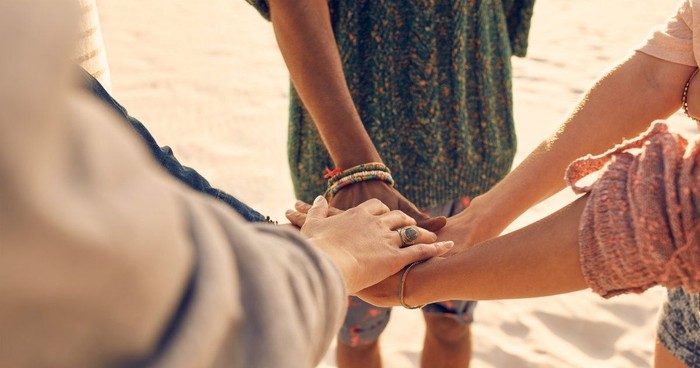
With the threat of homegrown terror constantly growing, how do we as Christians respond to our Muslim neighbors and refugees?
We can all agree it has been a heartbreaking couple of years. Terrorist attacks have struck at a staggering rate worldwide. They have affected all races and religions at nearly all corners of the world. Muslims and non-Muslims alike have fallen victim to these barbaric attacks. Each day terrorists continue wreaking havoc on innocent lives, creating a refugee crisis unlike anything my generation has ever seen. The devastation is unfathomable.
Following each attack, media outlets replay images of the carnage for days on end. News segments discuss how it’s not a matter of if, it’s a matter of when an attack of similar magnitude will occur on US soil. Warnings are issued for everyone to be vigilant of their surroundings as lone-wolf attacks are an ever-increasing threat.
Meanwhile, political figures debate whether Muslim refugees should be allowed to enter our country and whether monitoring systems should be forced on all Muslim Americans.
Sadly, amidst the pain and fury, fear is often capitalized on in these conversations and used to stigmatize an entire population. With the current presidential campaign season at its peak, the volume of these arguments seems to only be growing louder.
This is not a political post. I’m not here to tell you who to vote for, how to effectively defeat terrorism, or how to safely relocate refugees. Nor am I by any means downplaying the significance of our national security.
I am, however, asking each of us to pause and humbly ask ourselves: What impact is this all having on my heart? More specifically, how is it influencing my perceptions and treatment of innocent Muslims living around me? Am I allowing the toxic fear circulating in the media to affect how well I love my fellow human beings?
Yes, homegrown terror is a very real threat.
But are we allowing this threat to become a stronghold of fear in our hearts? Are we using fear as an excuse to withdraw from, exclude, and ostracize people of a different religion?
Christ never instructed us to be driven by fear. He did, however, call us to be governed by his love: In Matthew 22, Jesus commands his listeners and us: “‘Love the Lord your God with all your heart and with all your soul and with all your mind.’This is the first and greatest commandment. And the second is like it: ‘Love your neighbor as yourself.’ All the Law and the Prophets hang on these two commandments.”
My Experience with Muslim Neighbors
Growing up in the suburbs of Virginia, I never experienced relationships with Muslims. It wasn’t deliberate, I just didn’t know anyone who practiced Islam.
In my early twenties, I moved to Raleigh, NC. Overnight, I went from knowing zero Muslims to living directly across the street from a mosque.
All I had known of Islam was what I’d seen on TV, learned in a college Religion 101 class and subconsciously picked up from the stereotypes that circulated around in my post-9/11 teen years.
To be honest, I felt a little uneasy.
Not long after we arrived, a devout Muslim family moved in a couple doors down. These beautiful people were the most kind-hearted neighbors we had during our three years in NC. Whether bringing us food or routinely stopping to genuinely ask how we were doing, they were always incredibly gracious. I quickly grew to love this sweet family and cried when they moved.
A few years later, we relocated temporarily to Arkansas. My husband and sister-in-law drove a massive moving truck to AR, expecting to unload everything into a second-story apartment by themselves.
After taking the first load of boxes upstairs, my husband was startled to discover a group of Muslim immigrants carrying our furniture off the truck. Initially, he feared he was being robbed. To his surprise, he learned these complete strangers were helping him carry everything upstairs.
They had never met my husband. They had no idea how he would respond to a group of Muslim immigrants sorting through his belongings. Without asking any questions, they jumped in with servant hearts eager to help. Meanwhile, one of the women prepared dinner and invited my husband and sister-in-law over for a home-cooked meal.
Throughout our short time in Arkansas, these neighbors checked on our family, brought homemade desserts to our door, helped our son build a 12 foot tall snowman, and offered warm smiles to ease our homesick hearts.
Furthermore, in both of these towns it was only our Muslim neighbors who took any time to invest in relationships with our family. Every other neighbor kept solely to themselves, too fixated on their own lives to even say hello in passing.
Application for Today
When I hear people in the news talk about Muslims as if they are somehow less human, I burn with anger. When I see footage of millions of people, just like our neighbors, desperately fleeing for their lives, I ache with grief. When I read how these beautiful people are being denied entry into safer countries after literally losing everything, my soul weeps.
I understand that both national and international security are incredibly complex and not easily solved. I understand that our leaders have a great responsibility on their shoulders to make wise decisions when it comes to protecting people from future terrorist attacks.
But I see people post ignorant comments on social media. I hear political figures make callous remarks about Muslim refugees and Muslim Americans. I hear speeches that feed off fear, spew hate and encourage discrimination while garnering applause from a cheering crowd—even from those claiming to be evangelical Christians.
Regardless of your political stance on these issues, please remember that not all Muslims are terrorists. Remember that a violent minority does not represent a kind-hearted majority. More importantly, remember your responsibility as a follower of Christ to love others with His all-inclusive, unconditional love.
If people who do not place their faith in Christ have loved my family so well, how much more should we as Christians be reaching out to display a love greater than anything they’ve ever known?
If there are Muslims living nearby you, I beg you, resist the urge to draw inward out of fear.
Remember their humanity is no less important than your own.Remember that they are in need of love just as much as the next person.
Take to heart the words of Romans 12:9, “Don’t just pretend to love others. Really love them!”
Stretch out your hand. Open up your heart and your home. Take time to get to know the real person. Let go of whatever stereotypes might subconsciously affect your ability to love them well. Realize they are likely facing ignorant, uneducated, callous remarks from people day in and day out. Take time to educate yourself and sincerely participate in their lives. Above all, ask yourself how you can better love them with the all-consuming, never-ending, unconditional love of Christ.








